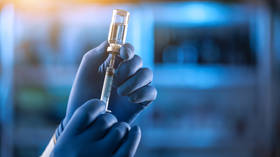Russia to test new allergy vaccine

Moscow will start testing the first-ever vaccine for allergies to birch pollen, according to Veronika Skvortsova, the head of Russia’s Federal Medical-Biological Agency (FMBA).
The vaccine is also designed to combat the effects of similar allergens, including apples, peaches, peanuts, and soy, Kommersant reported. Clinical trials announced last week are expected to start in September and be completed by next summer.
The vaccine developed by FMBA’s Immunology Institute along with the Medical University of Vienna could revolutionize allergen-specific immunotherapy, according to the researchers behind the project.
Existing treatments can take several years and involve dozens of shots, and still only end up reducing the symptoms rather than eliminating them completely. According to the researchers, the new vaccine would require just three to five shots to be effective.
“We have charted the birch allergen and found the most important parts in its structure,” Igor Shilovsky, the deputy director for science and innovations at the Immunology Institute, said. He added that the parts responsible for toxicity and potential side effects were removed to create an anti-allergy vaccine.
In the 1990s, researchers determined that allergens are a group of proteins, which made allergen-specific therapy possible. The development of vaccines based on recombinant allergens and synthetic allergen peptides has been discussed since the 2010s. However, all known treatments require long periods of time to produce sustainable effects.













